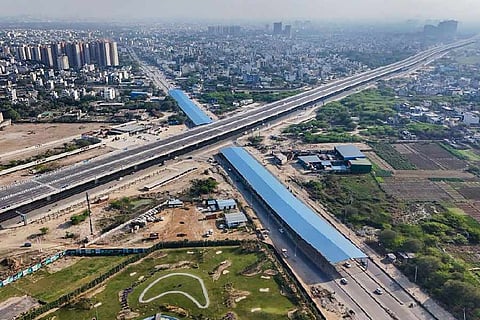
New Delhi- In a significant step towards realizing the vision of saturating National Highways with green cover, the National Highways Authority of India (NHAI) has announced a unique initiative to establish Miyawaki plantations on land parcels adjacent to National Highways. This initiative will cover over 53 acres of land in various locations around Delhi-NCR.
The identified sites for Miyawaki plantations include:
Dwarka Expressway, Haryana: 4.7 acres
Delhi-Vadodara section of Delhi-Mumbai Expressway, near Sohna: 4.1 acres
Chabri and Kharkhara interchanges on NH 152D, Ambala-Kotputli corridor, Haryana: 5 acres each
Shamli bypass on NH-709B: over 12 acres
Duhai interchange on the Eastern Peripheral Expressway, near Ghaziabad: 9.2 acres
Meerut-Najibabad section of NH-34, Uttar Pradesh: 5.6 acres
Ground preparation has already begun at these sites, with plantation activities set to commence during the upcoming monsoon season and expected to be completed by the end of August 2024.
The Miyawaki method, a unique Japanese approach to ecological restoration and afforestation, will be employed for these plantations. This method aims to create dense, native, and biodiverse forests quickly. Benefits of Miyawaki forests include groundwater retention and recharging of the water table, faster tree growth, and acting as sound and dust barriers. The focus will be on planting indigenous species that are well-suited to local climate and soil conditions.
The development of Miyawaki forests will contribute significantly to creating a resilient ecosystem, providing numerous benefits to the environment and local communities. These benefits include improved micro-climatic conditions, enhanced air and soil quality, biodiversity conservation, rapid green cover growth, efficient carbon absorption, soil restoration, and habitat creation for local flora and fauna.
Based on the success of this initiative in Delhi-NCR, NHAI plans to replicate the Miyawaki plantation pattern across the country. Increasing green cover along National Highways will enhance the overall health and well-being of citizens living nearby and improve the aesthetics and enjoyment of commuting on these roads.
This initiative underscores NHAI's commitment to sustainable development and environmental conservation, promising long-term ecological and societal benefits.
You can also join our WhatsApp group to get premium and selected news of The Mooknayak on WhatsApp. Click here to join the WhatsApp group.